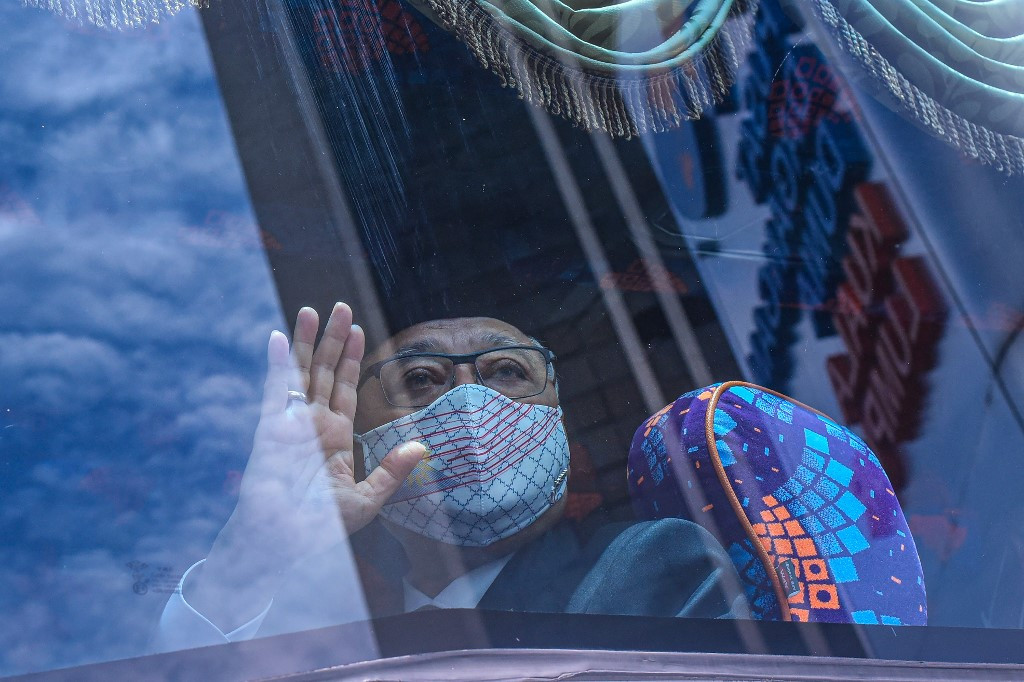Popular Reads
Top Results
Can't find what you're looking for?
View all search resultsPopular Reads
Top Results
Can't find what you're looking for?
View all search resultsUMNO redux
The return of the UMNO, marked by the appointment of Ismail Sabri Yaakob as prime minister, was the result of an elite-driven political machination.
Change text size
Gift Premium Articles
to Anyone
I
n retrospect, the victory of the Pakatan Harapan opposition coalition in 2018 now looks like a drawn-out denouement. Not only did the political turnaround fail to bring about genuine changes in Malaysia, but all the coalition managed to do was to bide its time and, when push came to shove, it failed to prevent the inevitable, the return of the grand old coalition of the United Malays National Organization (UMNO) to power.
And the saddest thing about the whole episode was that while Pakatan Harapan’s win was through the ballot boxes, the return of the UMNO, marked by the appointment of Ismail Sabri Yaakob as prime minister, was the result of an elite-driven political machination.
And in hindsight we can now see that the UMNO has been methodical in its plot; first by joining a coalition to prop up Muhyiddin Yassin before gunning for the big prize.
And if in 2018, Malaysian voters, from different ethnic groups and political and religious persuasions, expected a radical change, now they are stuck with the old order imposing its will on the population without a direct mandate from the electorate.
But this should not surprise us. Malaysia is nothing if not a land of contradiction, the primary example being that it is a parliamentary democracy, yet its politics are some of the most personality-driven in the region.
The main reason, if not the only reason, why Pakatan Harapan is in a pickle right now, is simply the result of a fractious relationship between senior politician Mahathir Muhamad and its former deputy Anwar Ibrahim. With Mahathir continuing to refuse to allow Anwar to get close to power and Anwar’s persistent animosity toward his former mentor, it was only a matter of time before the conflict stymied the coalition's effort to stay in power.
And despite its status as a modern nation-state, the country’s political discourse is dominated by sectarianism based on religion and ethnicity. Political parties are mostly tied to religious identity, ethnicity and even region.
The UMNO and the Malaysian Islamic Party (PAS) have been very skillful in exploiting these ethnic and religious divisions to their advantage. As a UMNO politician, Ismail Sabri in 2019 called on Muslims to wage "jihad” against the then-ruling Pakatan Harapan coalition, which is ethnically more diverse.
The return of the UMNO is certainly a strong indication that the old way of doing things, marked by personality-driven politics and exploitation of religious and ethnic sentiments to remain in power, will persist. Yet, at the same time with the opposition coalition now in a stronger position, we can expect that changes in government will take place more often and it is likely that even with the backing of the UMNO, Ismail Sabri’s stint will be short-lived.
It is understandable that Malaysians are now tired, if not jaded, with how politics is going and with COVID-19 continuing to take its toll on the population and the economy, it is certain that they desperately want to have stability back.
In 2018, Malaysians channeled their discontent through the ballot boxes, now they should be given the same opportunity.










